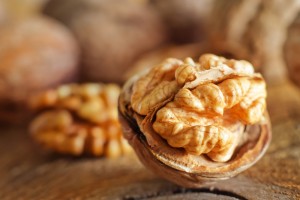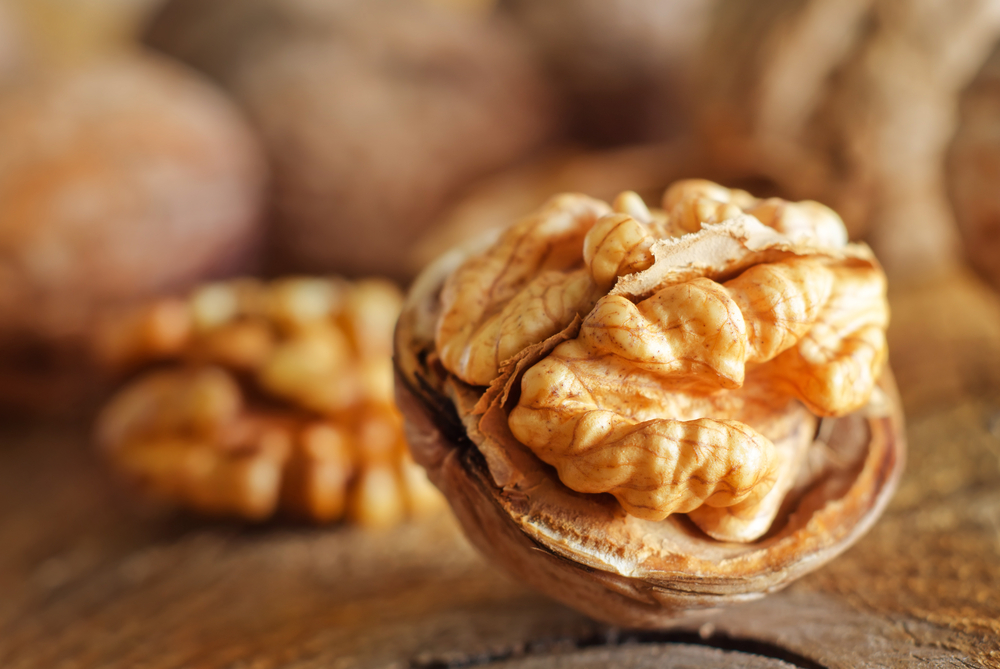 In the spirit of the season, Paul Davis, PhD, of the University of California, Davis, and colleagues in the laboratory discovered that whole walnuts or walnut oil may slow prostate cancer growth. The team administered walnut derivatives to transgenic adenocarcinoma of the mouse prostate (TRAMP) mice and identified a significant reduction in prostate tumor size, likely due to the fat component of walnuts.
In the spirit of the season, Paul Davis, PhD, of the University of California, Davis, and colleagues in the laboratory discovered that whole walnuts or walnut oil may slow prostate cancer growth. The team administered walnut derivatives to transgenic adenocarcinoma of the mouse prostate (TRAMP) mice and identified a significant reduction in prostate tumor size, likely due to the fat component of walnuts.
“For years, the United States government has been on a crusade against fat, and I think it’s been to our detriment,” said Dr. Davis, who published the team’s work in the Journal of Medicinal Food, in a news release from the University. “Walnuts are a perfect example. While they are high in fat, their fat does not drive prostate cancer growth. In fact, walnuts do just the opposite when fed to mice”.
Adding to the benefits, walnuts reduced cholesterol levels and increased insulin sensitivity in the TRAMP mice, as well as reducing the levels of insulin-like growth factor (IGF)-1, shown to play a role in prostate cancer. “The energy effects from decreasing IGF-1 seem to muck up the works so the cancer can’t grow as fast as it normally would,” explained Dr. Davis. “Also, reducing cholesterol means cancer cells may not get enough of it to allow these cells to grow quickly.”
The motivation for this work came from a previous association between whole walnuts and prostate tumor size in mice. However, in that study, it was unclear what part of the nut–meat, oil, or omega-3 fatty acids–granted these effects.
To tease out the main factor, Dr. Davis’ study used walnuts, walnut oil, or a walnut-like fatty acid mixture in mice for 18 weeks. “We showed that it’s not the omega-3s by themselves, though, it could be a combination of the omega-3s with whatever else is in the walnut oil,” said Dr. Davis. Only walnuts and walnut oil reduced cholesterol and prostate cancer growth–not the walnut-like fat.
Although the team still does not know exactly what leads to the benefits, they do know that fiber, zinc, magnesium, and selenium within the walnut are not part of the mix. “It’s becoming increasingly clear in nutrition that it’s never going to be just one thing; it’s always a combination,” said Dr. Davis.
Dr. Davis noted that results in mice do not always translate to the safe effects in humans, meaning that walnuts may not definitively prevent prostate cancer. However, studies such as PREDIMED showed that when humans eat a Mediterranean diet, which includes walnuts, cancer mortality is reduced.
An additional note is that modifying a diet to include more of anything should be considered carefully. “In our study the mice were eating the equivalent of 2.6 ounces of walnuts,” said Dr. Davis. “You need to realize that 2.6 ounces of walnuts is about 482 calories. That’s not insignificant, but it’s better than eating a serving of supersized fries.”
Ultimately, with the holiday season in sight and additional benefits of walnuts including cardiovascular health, Dr. Davis said, “Feel free to consume [walnuts] in moderation.”

